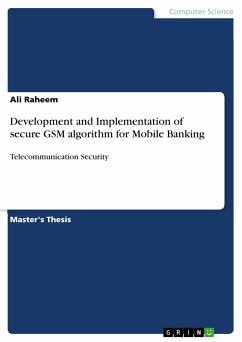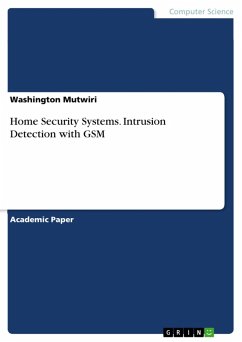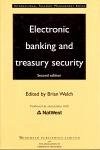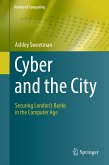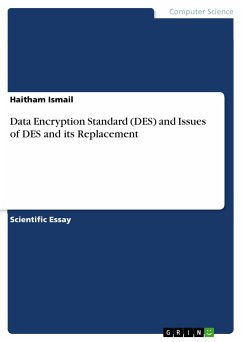Master's Thesis from the year 2011 in the subject Computer Science - IT-Security, grade: MERIT , ( Middlesex University in London ), course: Telecommunication Engineering , language: English, abstract: GSM systems are vulnerable to an unauthorized access and eaves droppings when compared with the traditional fixed wired networks due to the mobility of its users. The main idea of this project is to develop an application device to secure mobile banking over unsecure GSM network. It is important to mention here that, mobile banking is a term used for performing balance checks, account transactions, payments, credit applications and many other online applications. But unfortunately, the security architecture for cellular network is not entirely secure. As a matter of fact, GSM network infrastructure is proved to be insecure and many possible attacks have well documented in the literature. Security was never considered in the initial stages therefore sending protective banking information across an open mobile phone network remains insecure. Consequently, this project focuses entirely on the developing and designing security techniques to asses some security issues within mobile banking through cellular phone network (GSM). The main aim of this project was to investigate and examine the following: 1. Security issues in each level of the mobile network architecture. 2. Messages and signals exchanged between user's cellular phone and mobile network at each level. 3. The overall security architecture of GSM flaws. 4. Some existing security measures for mobile transactions. 5. The current security within SMS banking and GPRS banking. Finally, two folded simulation in MATLABT were performed using OFDM which is a broadband multicarrier modulation method that provides a high performance operation to transmitted and received data or information. In other words, it is the most customary single that uses carrier modulation that gives high speed function in microwave frequency. Therefore, the first program was concerned with generating transmission and receiving the OFDM signal without channel noise effect. The second program was concerned with the effects of high power amplifier and channel noise on the OFDM signals. It is to be noticed here that the OFDM is a modulation that is especially suitable for wireless communication. Consequently, the suggested programme succeeded in achieving a limited noise or interference in the signal as the users complained and suffered constantly from this noise and from losing the data or the information.
Dieser Download kann aus rechtlichen Gründen nur mit Rechnungsadresse in A, B, BG, CY, CZ, D, DK, EW, E, FIN, F, GR, HR, H, IRL, I, LT, L, LR, M, NL, PL, P, R, S, SLO, SK ausgeliefert werden.
Hinweis: Dieser Artikel kann nur an eine deutsche Lieferadresse ausgeliefert werden.

